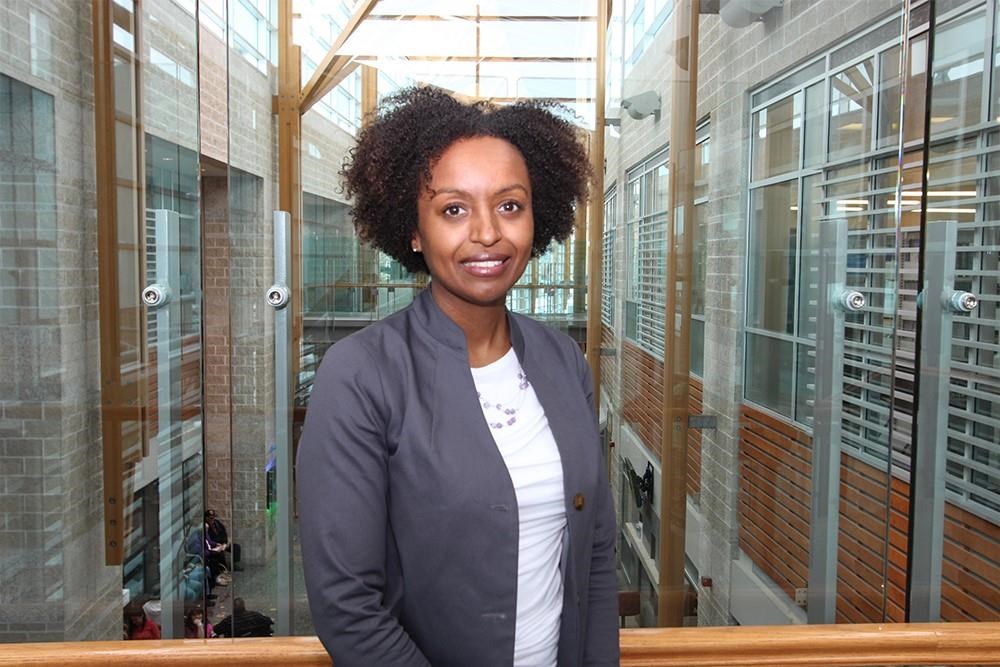An online training program is aiming to educate health-care professionals about biases Indigenous women may experience as highlighted by allegations of recent coerced sterilizations.

Dr. Naana Jumah, an obstetrician-gynecologist at the Thunder Bay Regional Health Sciences Centre and assistant professor at the Northern Ontario School of Medicine, says the idea for the program came in 2011 when she was doing her residency.
“It originally started as a project to understand what residents in obstetrics and gynecology knew about Indigenous women’s health and … I also asked program directors across Canada what resources they had and what expertise they had to provide a curriculum,” Jumah says.
“Residents really didn’t have an understanding, but they were interested. And program directors wanted to provide a curriculum, but they didn’t have the resources, the know-how and the contacts in the community to do that.”
The program, which starts Tuesday, incorporates feedback from 11 Indigenous women’s organizations from across Canada. Jumah also worked with Dr. Lisa Richardson, a strategic adviser in Indigenous Health at the University of Toronto’s Faculty of Medicine and an associate professor in the Department of Medicine. They led a research team of mostly Indigenous women to develop the curriculum.
“It asks the person who is taking it to really critically look at themselves and understand who they are and their biases,” says Jumah.
It also includes information on traditional healing and Indigenous history such as residential schools and the ’60s Scoop.
Jumah says she hopes the training can also be used in other areas such as law.
WATCH: Lack of access to Indigenous midwifery

“These women opened my eyes to the fact that this isn’t a journey about medicine or medical practice,” Jumah says. “It’s really about exploring our relationships with each other as Canadians and how we got to be in the situation that we’re in today.”
Richardson, who is Indigenous, says the program is important because “there continues to be major breaches in terms of Indigenous women’s health.”
In December, the United Nations committee against torture demanded Canada stop forced or coerced sterilization of Indigenous women and girls. The House of Commons health committee has also heard of Indigenous women alleging they were coerced into sterilization after childbirth. A class-action lawsuit alleges one woman believed she had no choice but to sign a consent form moments after receiving an epidural at a Saskatchewan hospital in 2018.
- Ontario doctors offer solutions to help address shortage of family physicians
- Capital gains changes are ‘really fair,’ Freeland says, as doctors cry foul
- ‘Dangerous message’: Experts slam anti-sunscreen claims circulating online
- As fake Botox cases prompt alert in U.S., Canada says no new issues reported
“The program isn’t specifically about forced sterilization, but of course the underpinning of understanding trauma and why trauma-informed care is important,” Richardson said.
“Going into a hospital environment can be traumatic, particularly if you are hearing ongoing stories from your auntie, your sister, your mother or your friends who continue to experience this violence.”
Wanda Phillips-Beck, a Winnipeg-based Indigenous scholar and researcher with the First Nation Health and Social Secretariat of Manitoba, says the online program is a good start, but much more needs to be done.
Phillips-Beck says cultures are diverse and health-care providers need to build relationships with communities around them.
“For women in rural and remote communities in Manitoba, they have to leave home to give birth and, up until very recently, they weren’t allowed to bring their significant others with them,” she says. “So there is a great deal of potential for many negative experiences. They have no family support, English may not be their first language, so miscommunication can occur.”
She says health-care providers must also spend time with elders and be informed about how traditional medicine can contribute to the well-being of Indigenous people.
Yolanda Wanakamik, a student at Lakehead University who worked on the program, says nothing in the study about racism that Indigenous women face in health care was surprising.
“What did surprise us is just how much of an impact it had on the women who were seeing people who were truly looking at building a relationship with them,” says Wanakamik, who is Anishnawbe and from the Thunder Bay, Ont., area.
“(The program) isn’t going to answer all the questions and educate everyone. But the beauty of it is that it does come from an Indigenous women’s perspective.”
WATCH: MMIWG inquiry a ‘failure’: Family of murdered Indigenous woman




Comments